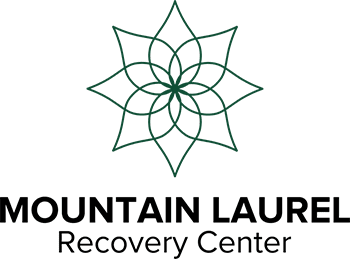Are your previous holiday memories a bit hazy?

1. Have a Grateful Heart
This Thanksgiving, be grateful for your newfound sobriety. Thousands of people lose their lives each year as a result of drug or alcohol addiction, but you’re still here. You’re a survivor, and this is your chance to make the most of each day.
Volunteering to help the less fortunate is a wonderful way to foster feelings of gratitude throughout the holiday season. Volunteering at a local homeless shelter or collecting donations for a canned food drive are both popular choices during Thanksgiving, but there are endless ways you can make a difference. Review our Volunteering In Recovery: The Benefits of Giving Back post to learn more.
2. Consider What Invitations to Accept
Contrary to popular belief, you are not obligated to accept every social invitation. If you’re not feeling up to traveling long distances or being in crowded spaces, it’s fine to gracefully decline your aunt’s invitation to have a Thanksgiving feast with 50 people 10 hours away from your home.
Setting boundaries is a normal and healthy part of the recovery process. Pushing yourself into situations where you don’t feel comfortable can put you at risk of relapse, so there’s nothing wrong with spending a quiet day at home if that’s what you choose.
3. Think About How You’ll Share Your Recovery Story
It’s likely that the people you’re celebrating with know or strongly suspect that you’ve been struggling with addiction, but this doesn’t mean they are entitled to hear every detail of your recovery story. You can share as much—or as little—of your personal journey as you wish.
If you decide to share your story, be prepared for questions. Many people have misconceptions about addiction, so it’s helpful to think of yourself as a teacher who is educating others about the recovery process. Our recent post, Sharing Your Recovery Story with Your Extended Family, offers additional tips to help you manage this conversation.
4. Bring Alcohol-Free Beverage Alternatives
Although many families don’t drink at all during the Thanksgiving holiday, others view alcohol as a natural part of their celebration. Some people may volunteer to refrain from drinking as a show of support for your recovery efforts, but others may want to stick to their personal traditions—especially if you haven’t shared your full recovery story.
If you’re attending an event hosted by someone else, bring sparkling cider, herbal tea, flavored water, or non-alcoholic punch to share. Since many people avoid alcohol due to weight loss efforts, religious beliefs, or concerns about alcohol mixing with other medications, you might be surprised by how many people choose to spend the day sober with you.
5. Indulge Wisely
Pumpkin pie, turkey, stuffing, and cranberry sauce—there’s an endless buffet of treats to enjoy during your Thanksgiving celebration. While there’s nothing wrong with enjoying special treats, it’s important to be mindful of your food choices.
Limiting your intake of fatty and greasy foods, going easy on the caffeine, and planning your meals to keep your blood sugar level stable throughout the day is the best way to make sure you continue to put your sobriety first throughout the holiday season. Refer to our recent post, How Diet Affects Your Mood in Recovery, to learn more.
6. Keep Your Stress Level in Check
For most people, Thanksgiving marks the start of a hectic holiday season. Stay on track with your recovery by remembering the wellness-focused habits you learned during your time at Mountain Laurel Recovery Center’s Pennsylvania drug and alcohol addiction treatment program.
Making time for sufficient sleep, exercising regularly, writing in your journal, and engaging in your favorite hobbies can help you manage stress without turning to drugs or alcohol. If you need extra support, our extended care services might be an option to consider as well.
7. Make an Emergency Plan
It’s smart to be prepared for the possibility that your Thanksgiving celebration might not go as well as you had hoped. Make sure you have contact information for your sponsor and a few trusted friends readily available, so you have a support system in place if you start to struggle.
If you’re traveling, it’s a good idea to look up the locations of 12-Step meetings in that area. Alcoholics Anonymous, Narcotics Anonymous, and other groups frequently host multiple holiday meetings to help keep members on the right track. You’ll be welcomed with open arms, no matter where you’re from.
